When it comes to achieving healthy, glowing skin, many people turn to products packed with chemicals or synthetic ingredients. However, nature offers a more holistic, effective approach. Flowers, with their age-old therapeutic properties, have been used in skincare treatments for centuries. Packed with vitamins, antioxidants, and healing compounds, flowers can soothe, protect, and rejuvenate the skin naturally. In this article, we’ll explore 10 common flowers that can enhance your skin care routine and treat various skin concerns, from dryness to acne.
1. Rose – The Ultimate Beauty Flower for Skin
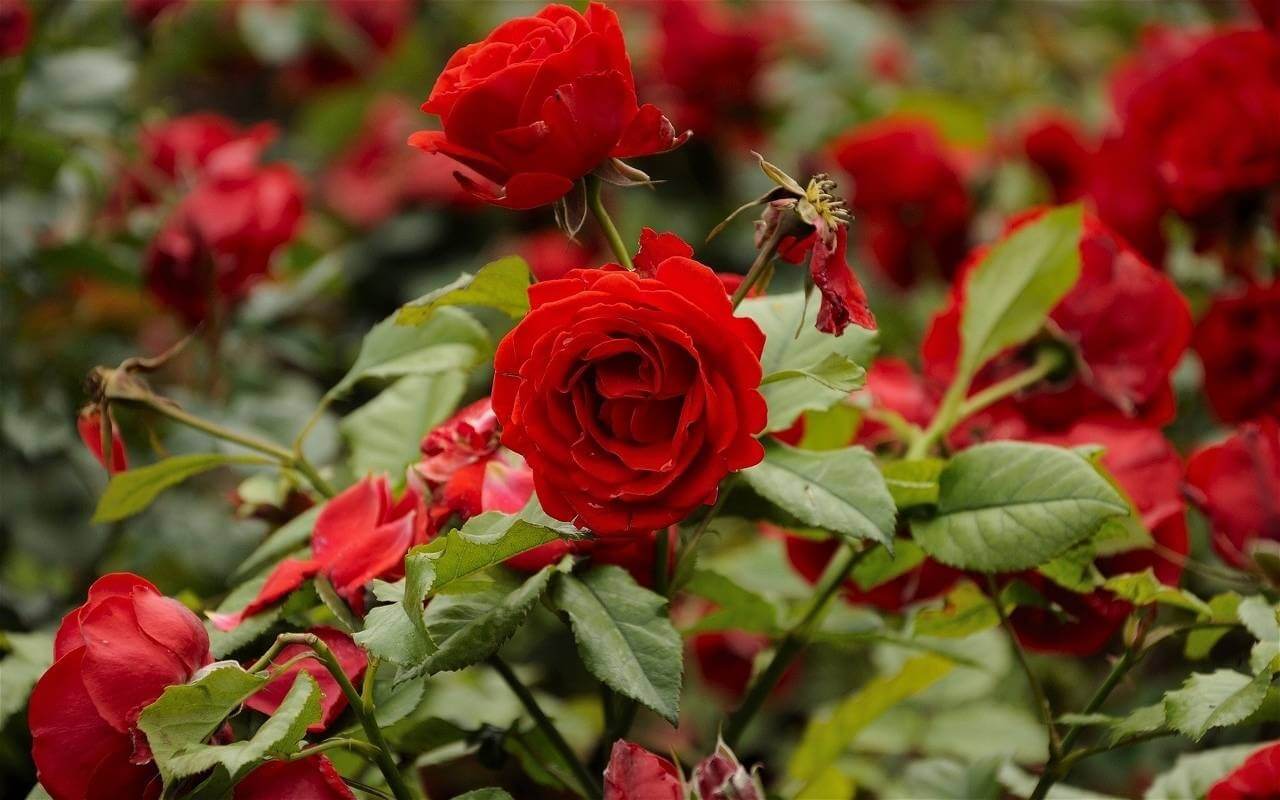
Rose is undeniably one of the most beloved flowers for skin care. The beauty and benefits of rose petals have long been associated with feminine allure, and for good reason. Rose is packed with antioxidants, flavonoids, and Vitamin C, making it a fantastic flower for achieving healthy, glowing skin.
Rose water, an essential in many skincare routines, helps hydrate the skin and promotes a youthful glow. It also works wonders for soothing skin redness, calming irritation, and minimizing the appearance of fine lines. Moreover, rose oil can tighten pores, promote even skin tone, and balance oil production. Whether you have dry, oily, or combination skin, incorporating rose petals or rose water into your routine can provide the nourishment your skin needs.
How to use it: Rose water can be applied as a toner after cleansing your face, or rose oil can be gently massaged onto your skin before moisturizing.
2. Lavender – A Calming Flower for Skin Health
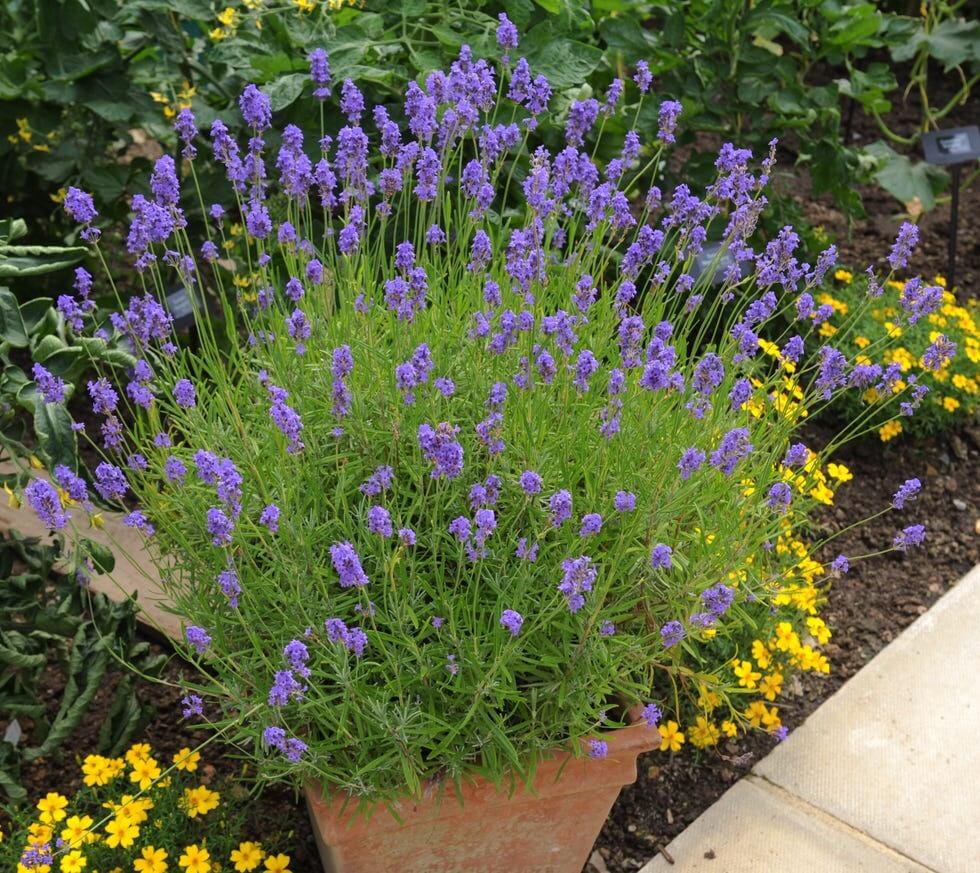
Lavender isn’t just for relaxation; it’s also incredibly beneficial for skin care. Known for its calming scent and soothing effects, lavender is an excellent flower for sensitive and acne-prone skin. Lavender essential oil is highly regarded for its antiseptic and anti-inflammatory properties, which help reduce inflammation and prevent bacterial growth on the skin.
Lavender also supports the skin’s ability to regenerate and balance oil production, making it ideal for those struggling with acne, eczema, or rosacea. It can promote a clearer complexion while relieving stress and calming irritated skin.
How to use it: Lavender oil can be diluted with a carrier oil, such as jojoba or coconut oil, and applied to acne spots or irritated areas. It also makes a great addition to face masks.
3. Chamomile – A Soothing Flower for Skin Irritations
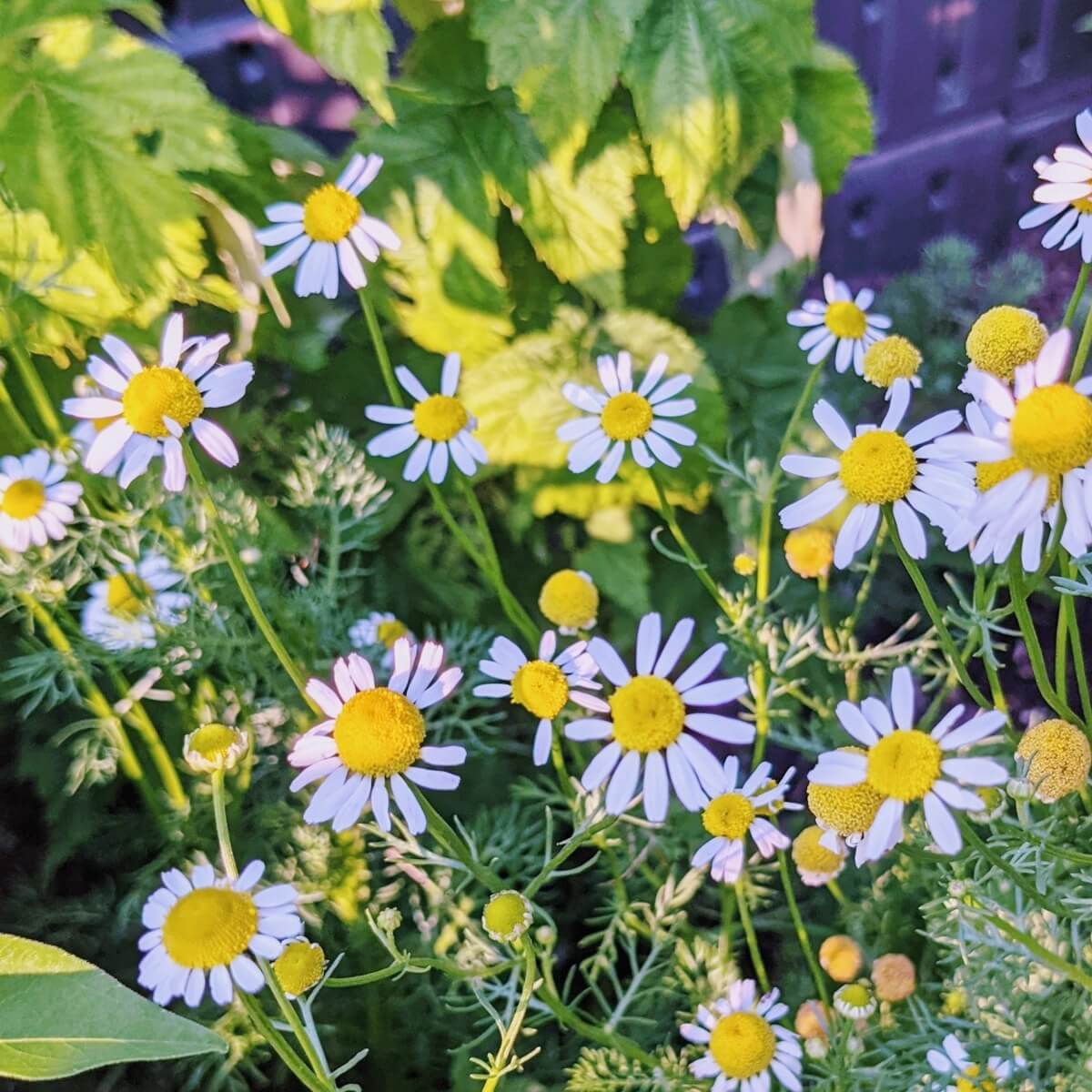
Chamomile is best known for its calming tea, but its benefits extend far beyond a relaxing drink. The soothing properties of chamomile flowers are perfect for calming skin inflammation, making it an ideal remedy for sensitive skin and conditions like eczema, psoriasis, and rosacea.
Chamomile is packed with antioxidants that help to reduce skin redness and swelling. It also contains azulene, a compound that has both anti-inflammatory and antioxidant properties, which can help reduce the appearance of blemishes and even skin tone.
How to use it: Chamomile-infused oils or extracts can be applied to irritated areas to calm redness. Chamomile tea bags, when chilled, can be placed over puffy eyes to reduce swelling and soothe the skin.
4. Calendula – The Healing Flower for Skin
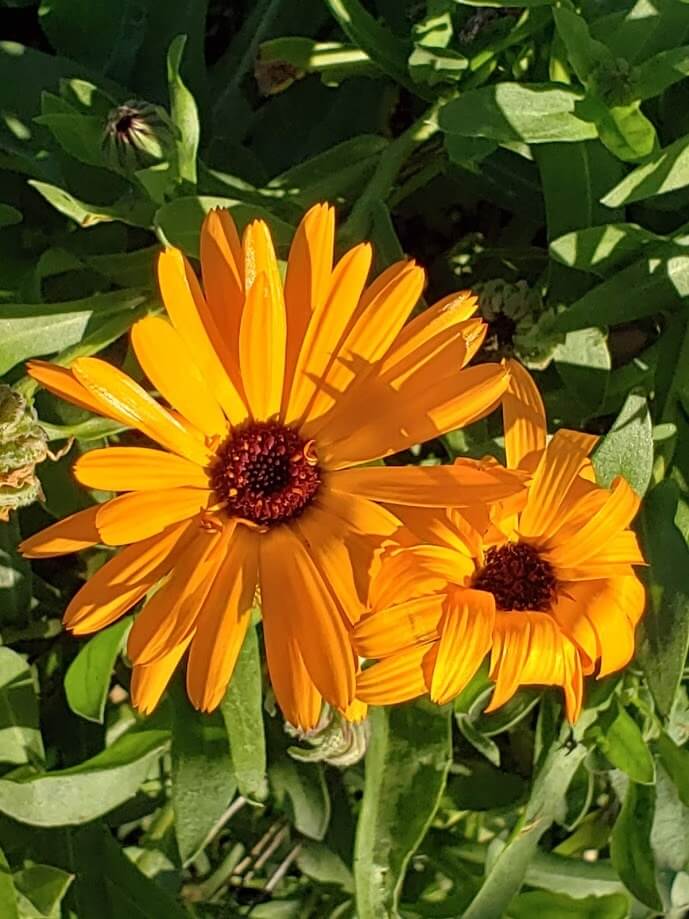
Calendula, or marigold, is one of the best-known flowers for healing skin ailments. Its bright yellow-orange petals have powerful healing properties, and it is often used in lotions, oils, and balms to treat cuts, scrapes, burns, and other skin irritations. Calendula’s anti-inflammatory properties make it an excellent flower for skin recovery, promoting faster tissue regeneration and soothing discomfort.
Rich in antioxidants, calendula can also enhance the skin’s natural repair processes, helping to minimize the appearance of scars and other skin imperfections.
How to use it: Calendula oil can be massaged into your skin to promote healing or applied directly to cuts, burns, or scars. You can also create a calendula-infused facial steam to open pores and encourage skin rejuvenation.
5. Jasmine – A Skin-Soothing Flower for Radiance
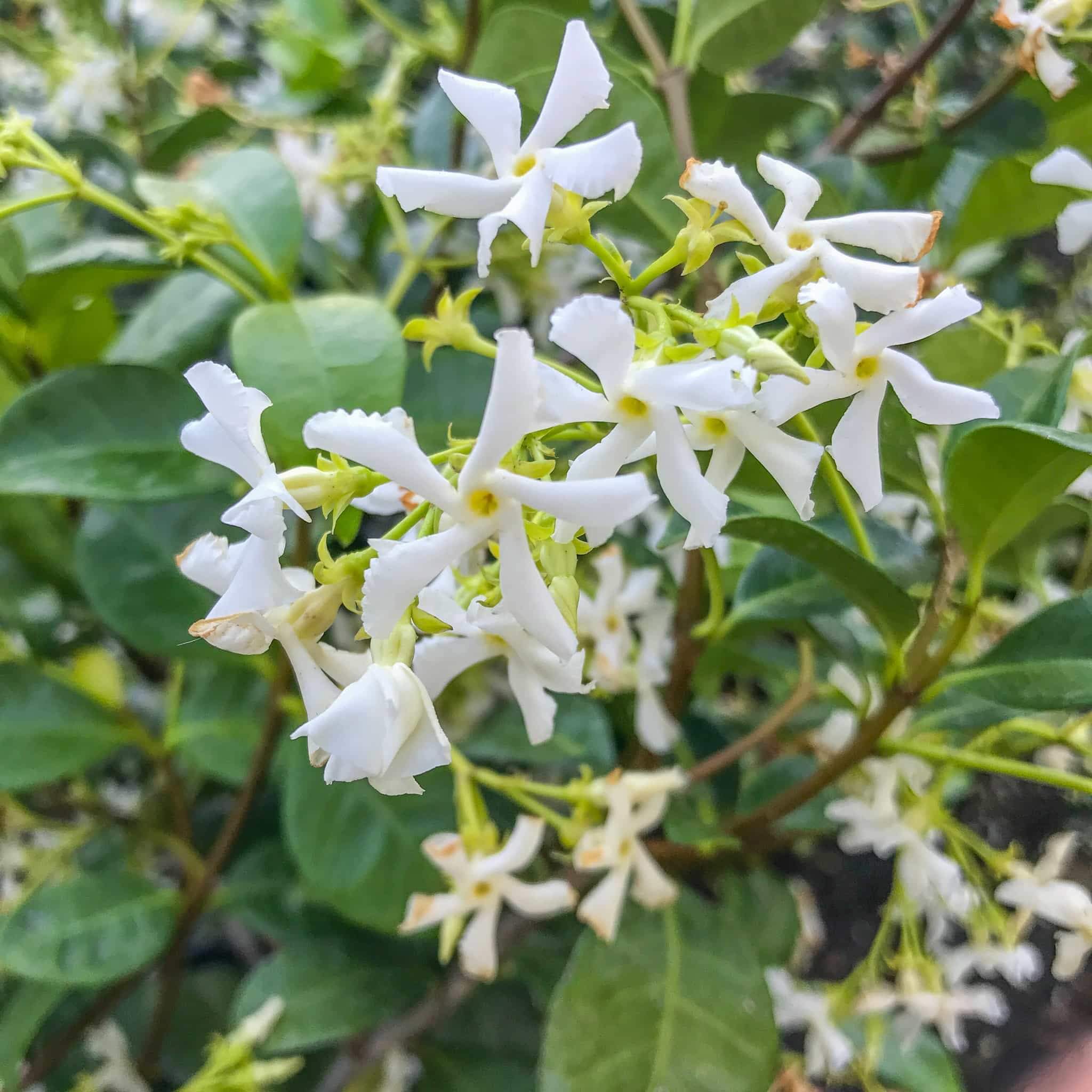
Jasmine is a delicate, aromatic flower that has been used in skincare for centuries. It is rich in antioxidants, which help neutralize free radicals and slow down the aging process, making it one of the best flowers for youthful, radiant skin. Jasmine oil is a natural emollient that deeply hydrates the skin, leaving it soft and smooth without being greasy.
In addition to moisturizing, jasmine helps to balance the skin’s production of sebum, reducing oily shine while providing hydration for dry areas. It also helps to even out skin tone, improving skin clarity and radiance.
How to use it: Jasmine oil can be used as part of your nighttime routine, applied after cleansing and before moisturizing. You can also mix a few drops of jasmine oil into your regular moisturizer or serum.
6. Hibiscus – The Natural Anti-Aging Flower
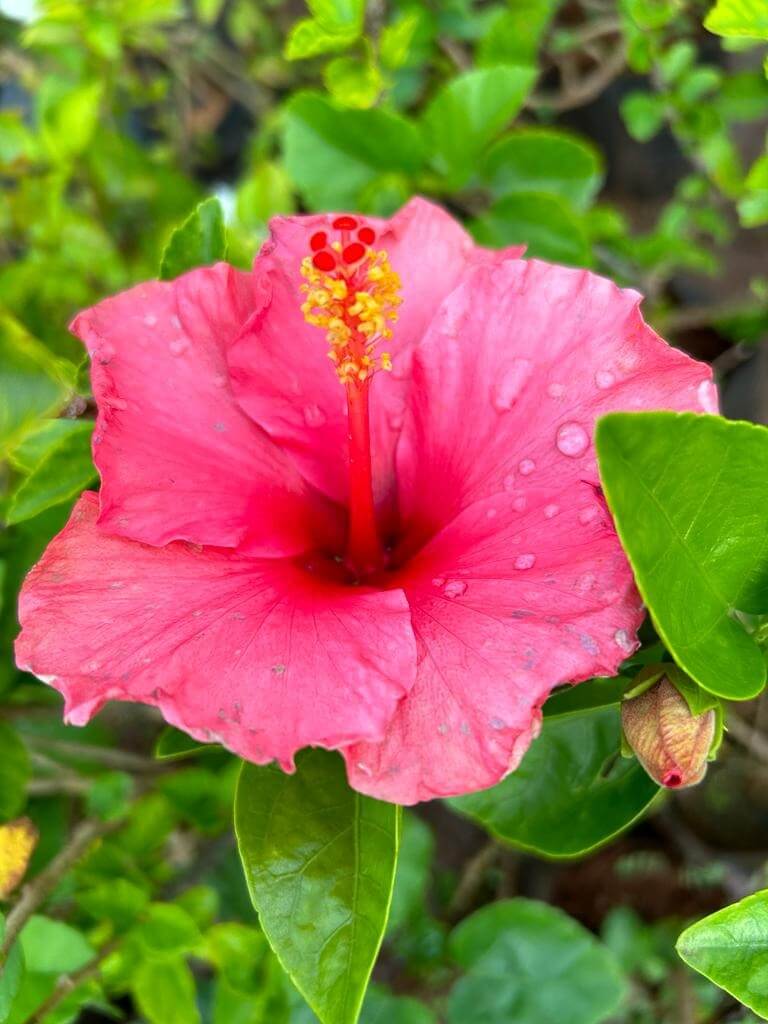
Hibiscus flowers, often referred to as “nature’s botox,” have powerful anti-aging benefits. Hibiscus is rich in natural AHAs (alpha-hydroxy acids), which help to gently exfoliate the skin, removing dead skin cells and promoting fresh, youthful skin. This flower helps to smooth out fine lines, prevent wrinkles, and improve skin texture.
In addition to its exfoliating properties, hibiscus helps to firm and tighten the skin, enhancing elasticity and reducing sagging. Hibiscus is particularly beneficial for those looking to maintain a youthful appearance, especially in the face and neck area.
How to use it: Hibiscus extracts can be found in many anti-aging serums, or you can create a hibiscus face mask at home by combining dried hibiscus flowers with honey and yogurt.
7. Marigold – A Flower That Fights Acne and Blemishes
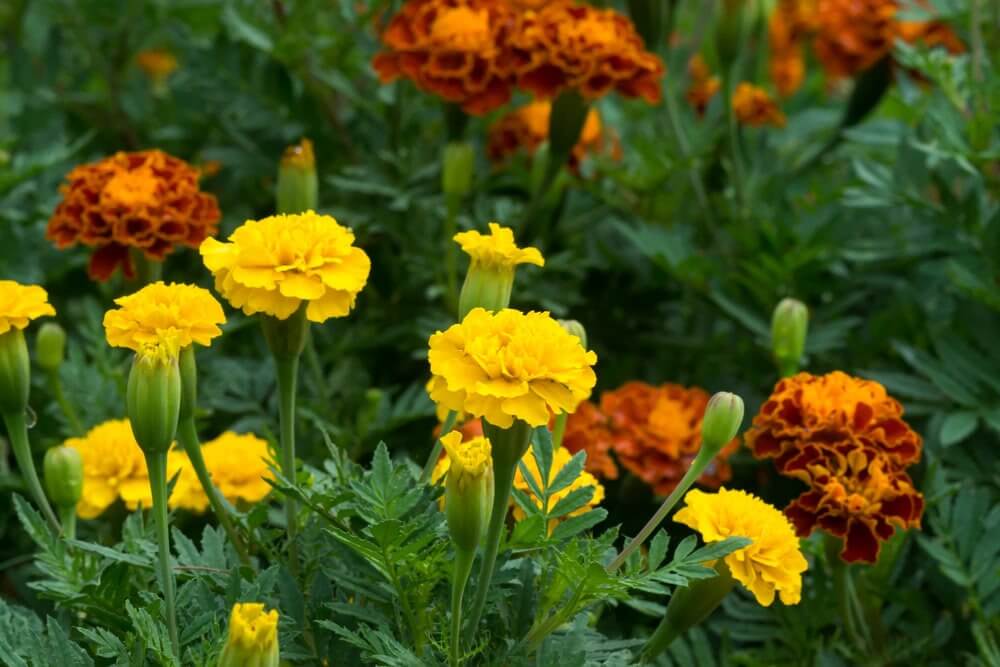
Marigold is another powerful flower for promoting clear, healthy skin. With its strong antibacterial and anti-inflammatory properties, marigold helps to prevent acne breakouts and reduces the appearance of blemishes. It also works to calm redness and irritation associated with acne.
Marigold flowers help to balance the skin’s oil levels and reduce the size of pores, which can be a contributing factor to acne. Additionally, the antioxidants in marigold help to promote skin healing and reduce scarring.
How to use it: Marigold oil can be applied directly to blemishes or incorporated into a daily acne-fighting routine. Marigold extract is often found in skincare products aimed at reducing acne and skin inflammation.
8. Elderflower – The Anti-Inflammatory Flower for Clear Skin
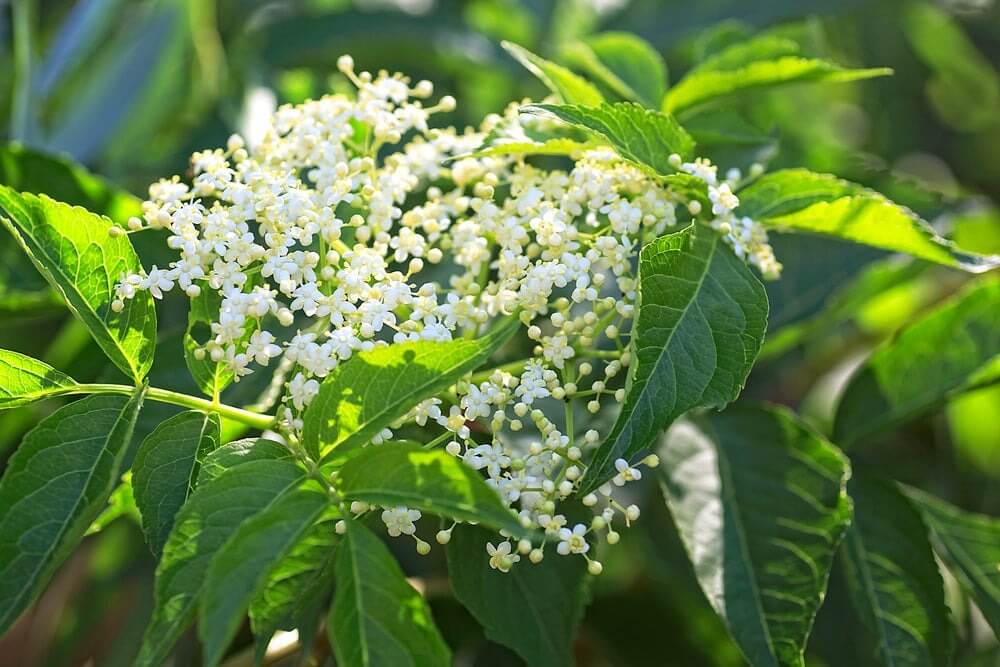
Elderflower is widely known for its ability to treat a variety of skin concerns, including acne, eczema, and skin discoloration. The anti-inflammatory properties of elderflower help to reduce redness, swelling, and irritation, while its high antioxidant content protects the skin from free radical damage.
Elderflower has also been shown to improve the overall appearance of the skin by tightening and firming it. It can also help reduce puffiness, making it an excellent choice for under-eye treatments.
How to use it: Elderflower can be used as a toner or incorporated into face masks. You can also create an elderflower steam to help open pores and refresh the skin.
9. Lotus – A Flower for Deep Hydration and Skin Repair
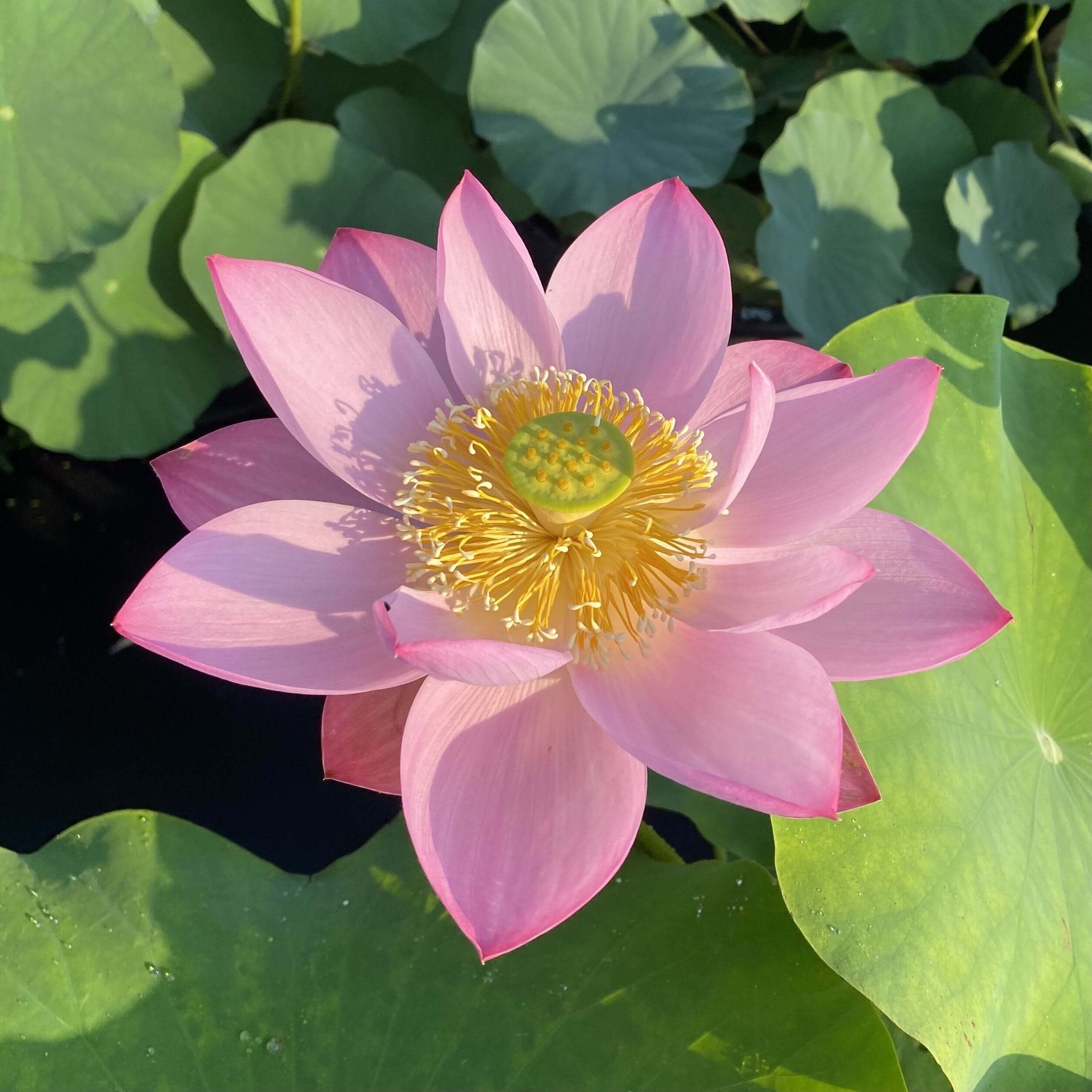
The lotus flower is a symbol of purity, beauty, and enlightenment, and it’s just as beneficial for your skin as it is for your soul. Rich in antioxidants, lotus extracts protect the skin from environmental damage and prevent premature aging. Lotus also has powerful hydrating properties, making it perfect for dry or dehydrated skin.
The flower’s natural compounds help balance the skin’s moisture levels, leaving it plump, nourished, and smooth. Lotus is particularly beneficial for people with dull, tired skin, as it promotes a healthy, glowing complexion.
How to use it: Lotus extract is commonly found in moisturizers and serums. You can also use lotus-infused oils for facial massage or add a few drops to your bath for a relaxing experience.
10. Sunflower – A Flower for Skin Protection
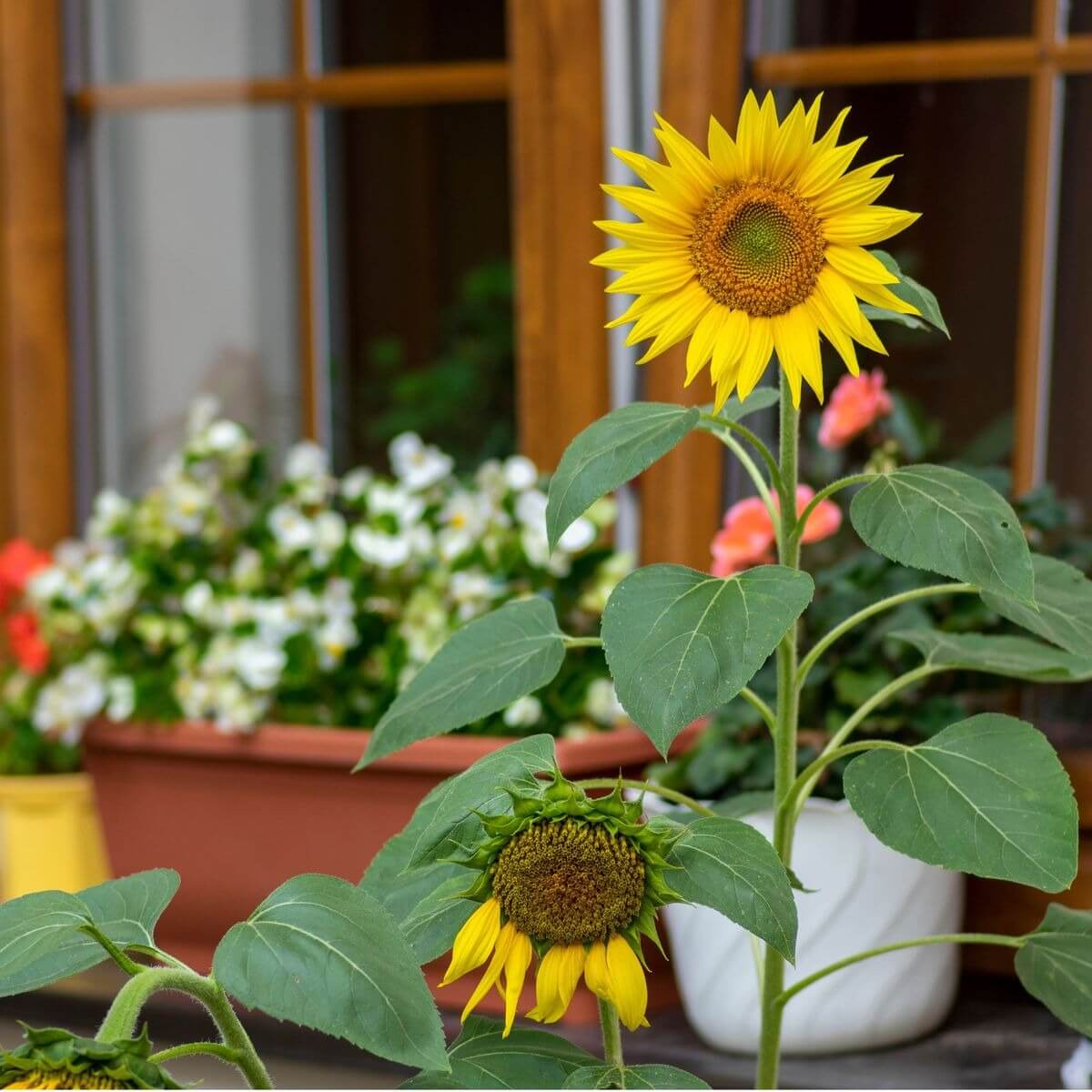
Sunflower petals are packed with Vitamin E, which is a powerful antioxidant known for its ability to protect the skin from oxidative stress and premature aging. Sunflower oil is also rich in fatty acids, making it an excellent moisturizer for dry and rough skin.
In addition to moisturizing, sunflower oil helps repair the skin’s protective barrier, keeping it soft and smooth. It also provides gentle protection against UV damage, making it a great addition to your daily skincare regimen.
How to use it: Sunflower oil can be massaged into the skin as a natural moisturizer, or used as a base for face masks.
From soothing irritation to promoting radiant skin, these 10 common flowers offer a wealth of benefits for your skin care routine. Whether you’re looking to reduce acne, fight signs of aging, or simply add some natural hydration, incorporating flowers into your beauty regimen can make a significant difference. From rose to lavender and sunflower, the healing properties of flowers are unparalleled in their ability to provide natural, effective skincare solutions.
Embrace the power of nature and consider adding these flowers to your skin routine for clear, glowing, and youthful skin!

